Councilmember Ivey Addresses Roundtable
Budget Reality Check: Councilmember Jolene Ivey Breaks It Down at July Business Roundtable Meeting
By Raoul Dennis
PHOTOGRAPHY BY AMIR STOUDAMIRE // PRINCE GEORGE’S SUITE MAGAZINE
At the July 2025 meeting of the Greater Prince George’s County Business Roundtable, Councilmember Jolene Ivey delivered a candid and wide-ranging budget presentation that doubled as a call to action and a reality check for local business leaders.
At the start of her discussion, Ivey reflected on the local government appointment changes that County Executive Aisha Braveboy is making, saying that the new executive is “well within her rights to do so” and reassured members of the executive body that Ms. Braveboy is pro-business.
Ivey, known for her pragmatic and outspoken style, shared both fiscal highlights and broader policy concerns as she walked attendees through the FY2026 Prince George’s County budget and the national policy shifts she believes will affect the region.
The adopted $5.8 billion county budget allocates 62% to education, 20% to public safety, and the remaining 18% to all other government functions—a distribution Ivey described as reflective of deep structural commitments, but also indicative of resource constraints. "We are seven times bigger than D.C. and have a quarter more people,” she emphasized, “but our operating budget is one-fourth of theirs.” She noted that such comparisons often fuel resident frustration, but they’re rooted in a stark funding gap.
Among the notable wins in the FY2026 budget were restored community health and cleanup funds, including $800,000 for the litter cleanup program, $250,000 for elderly meal delivery, and $1 million for a small business microgrant initiative. “We’re rolling the dice on another snowless winter,” Ivey quipped, explaining that the litter funds were reallocated from the snow removal budget. “We know for sure people will litter,” she added, calling for more camera enforcement to catch and penalize illegal dumping.
The budget also eliminated a 30-day hiring delay for first responders, which Ivey said had made the county less competitive in recruiting police officers, sheriffs, and firefighters. Additionally, the council preserved funding for labor trafficking investigations, disability care, and Prince George’s Community Television.
But Ivey’s remarks extended well beyond line items. She issued strong warnings about the ripple effects of recent federal legislation, including the July 4th bill signed by the President, which she called “shockingly irresponsible.” The legislation, she said, will result in the largest wealth transfer in American history—away from the poor and toward the wealthy—primarily through steep Medicaid and SNAP cuts. Ivey underscored that hundreds of Prince Georgians rely on these benefits, and bureaucratic barriers will make them harder to access, especially for those already overwhelmed.
“This hurts businesses too,” she said, pointing out how SNAP cuts impact grocery store revenues and how the rollback of premium tax credits—on which 57% of small business owners rely—will hurt entrepreneurs. “When you cut healthcare, you cut into business stability.”
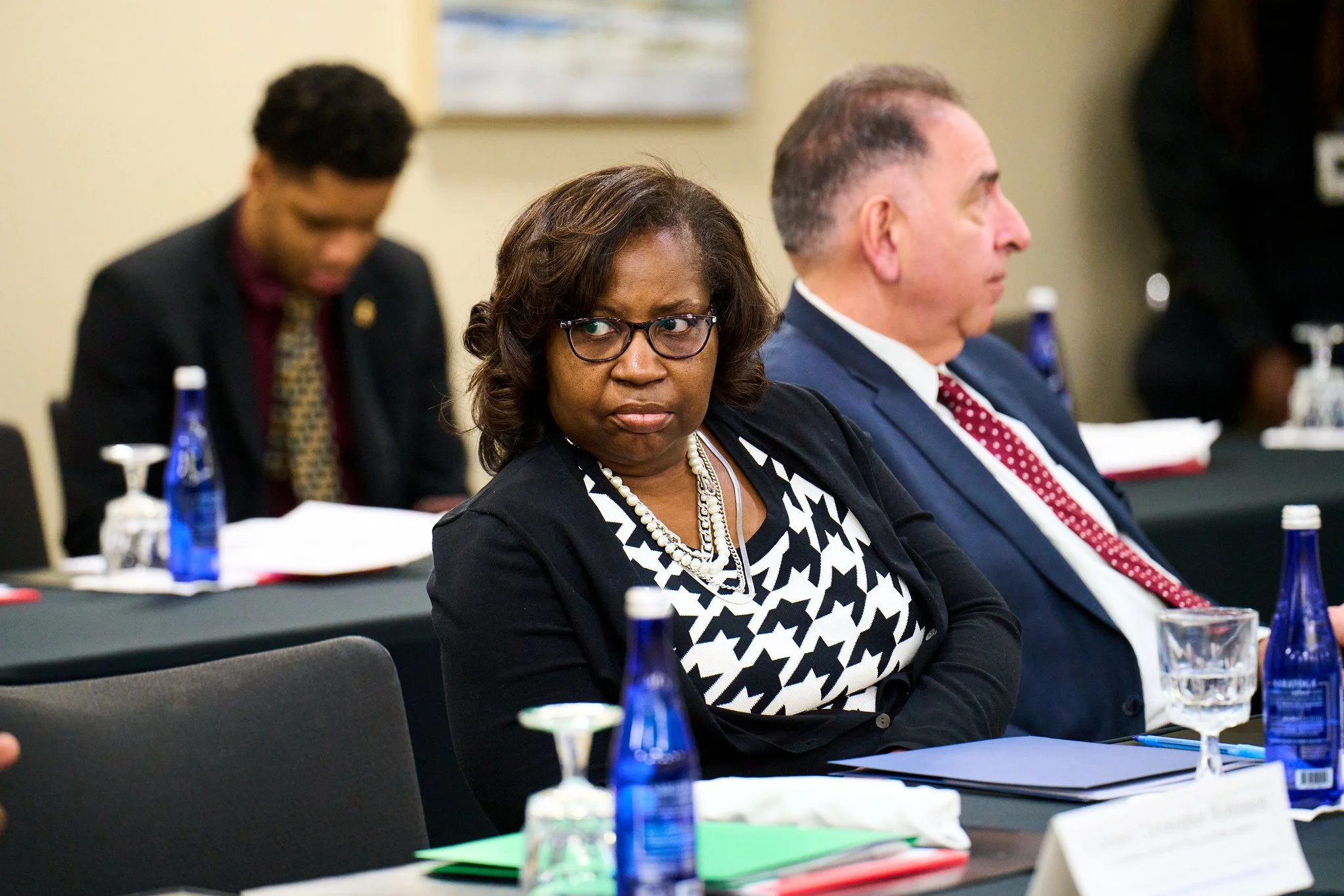
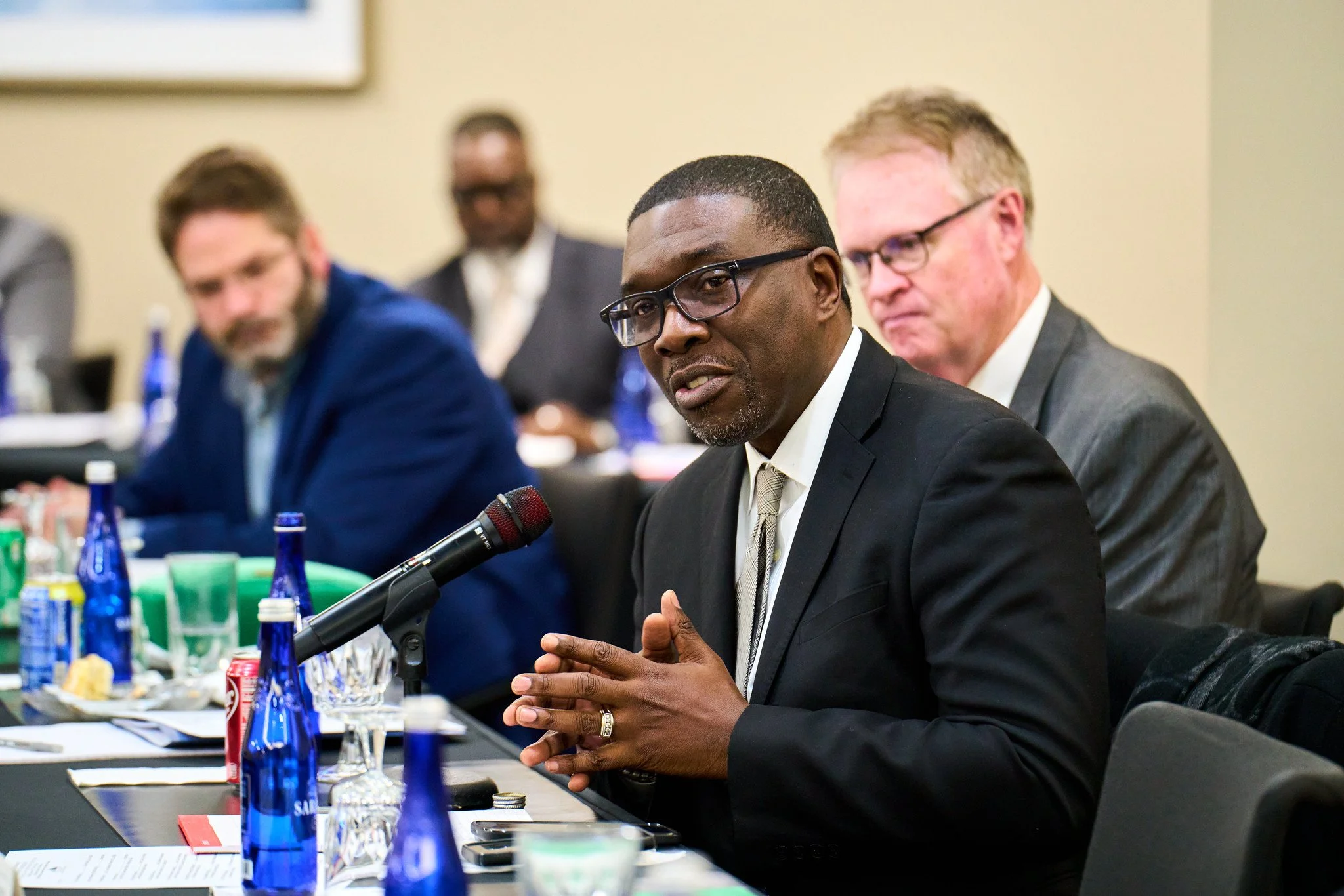
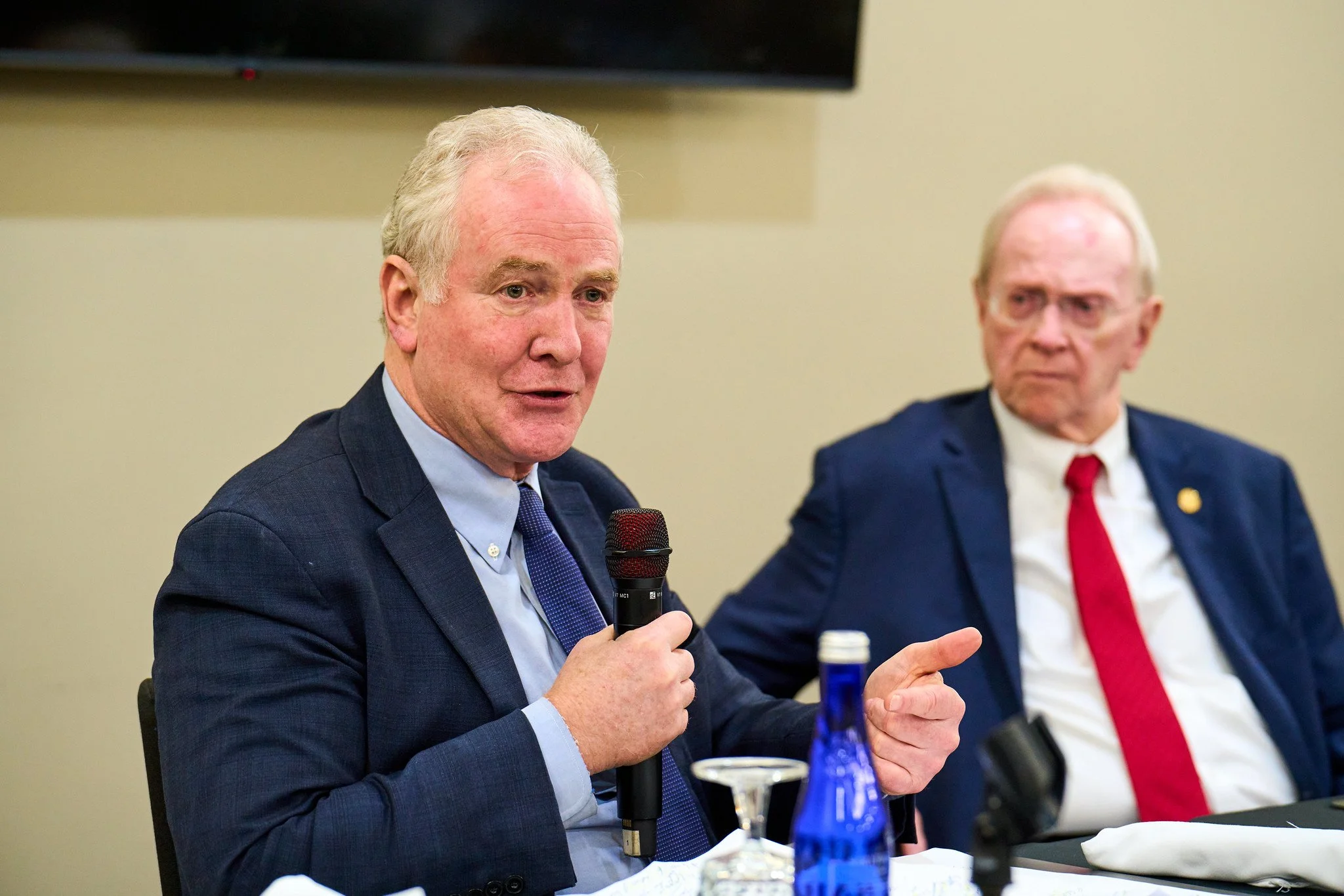
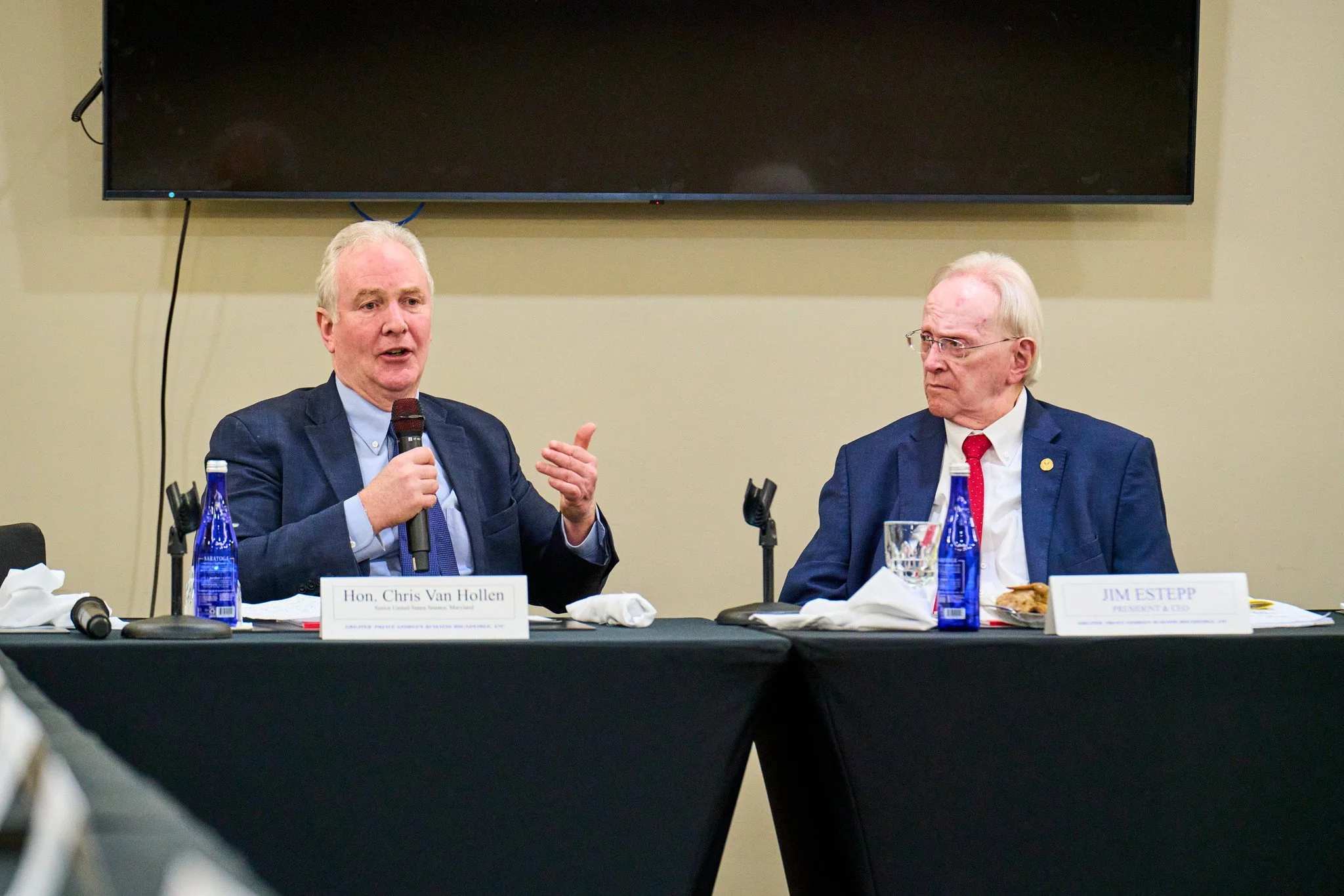
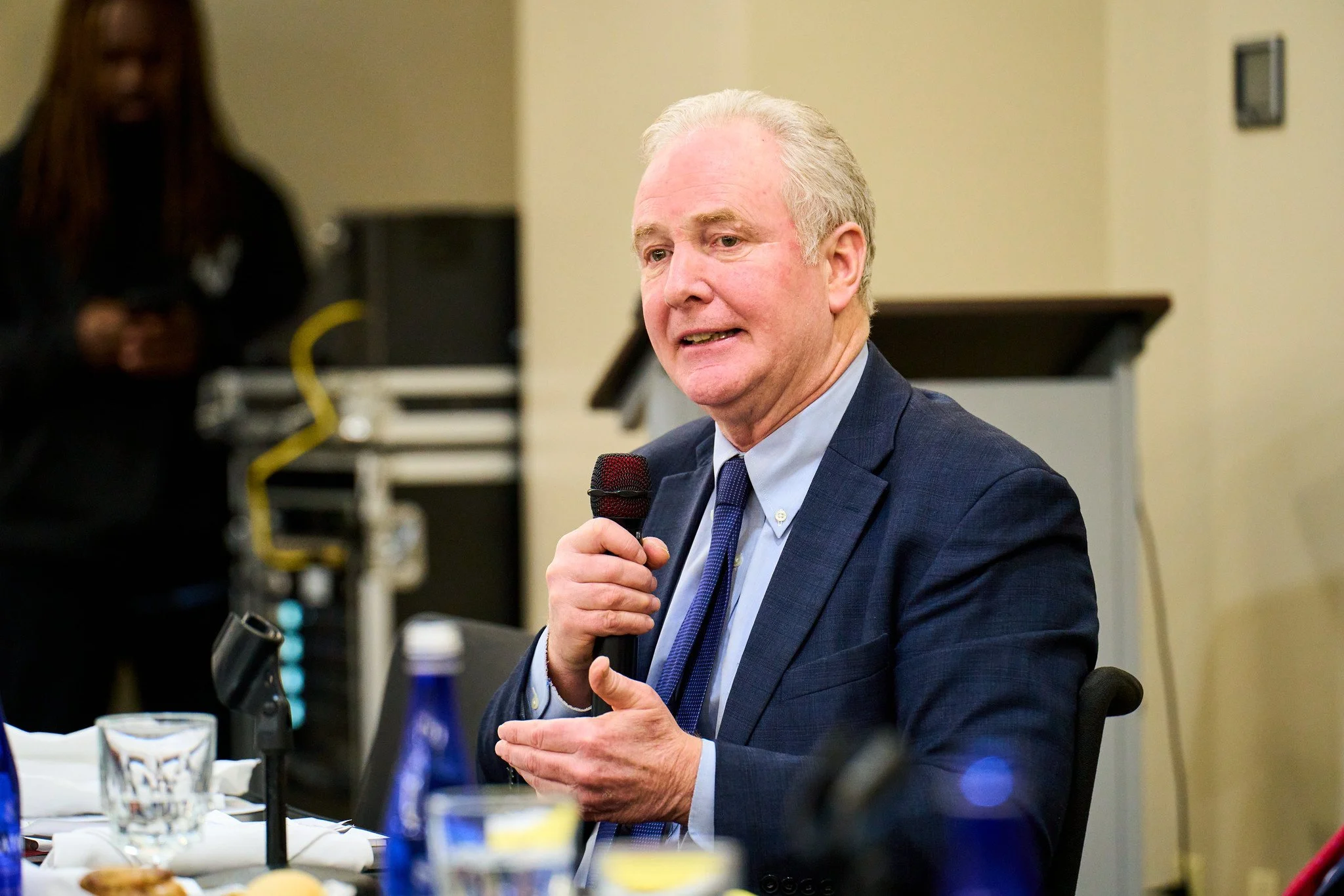
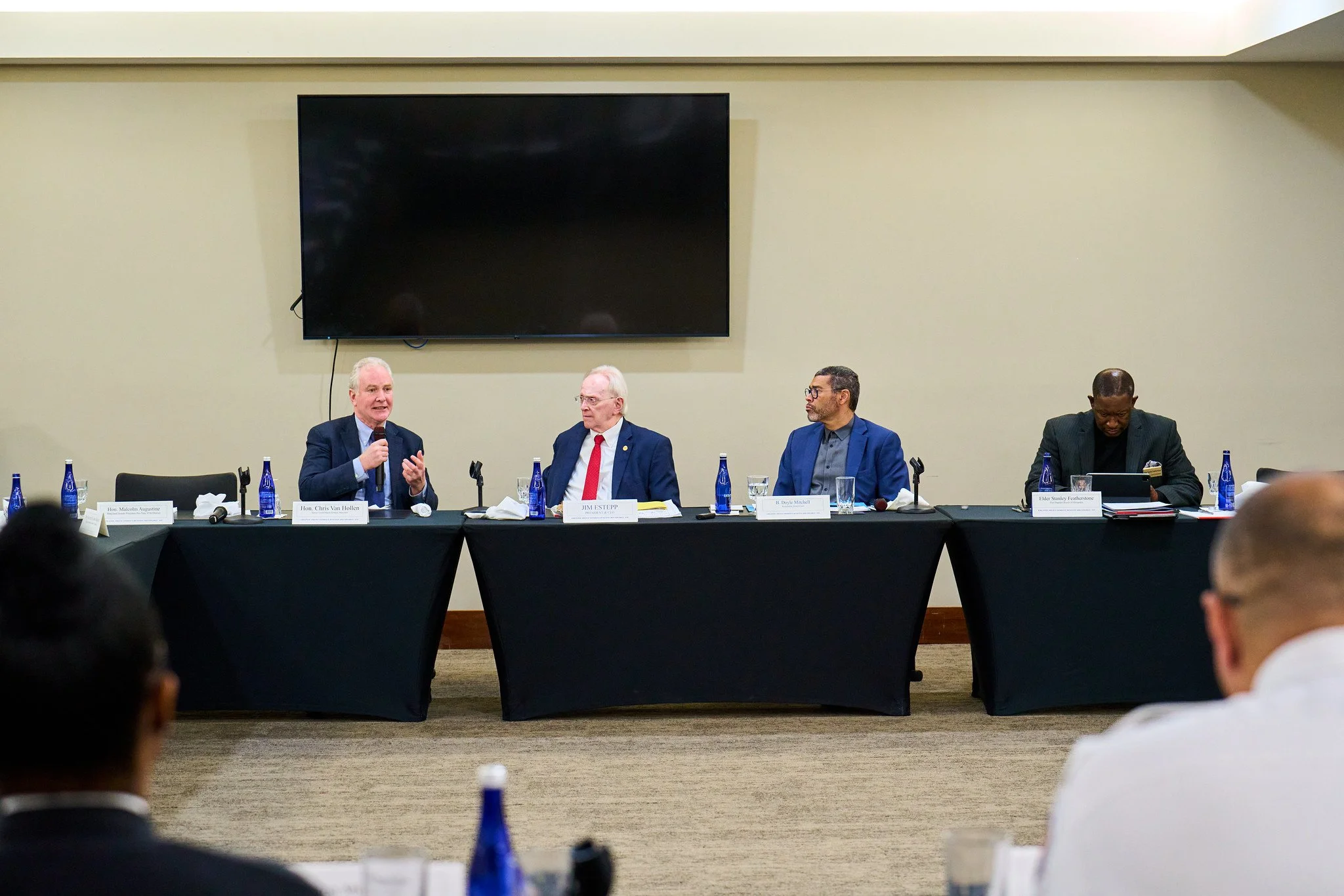
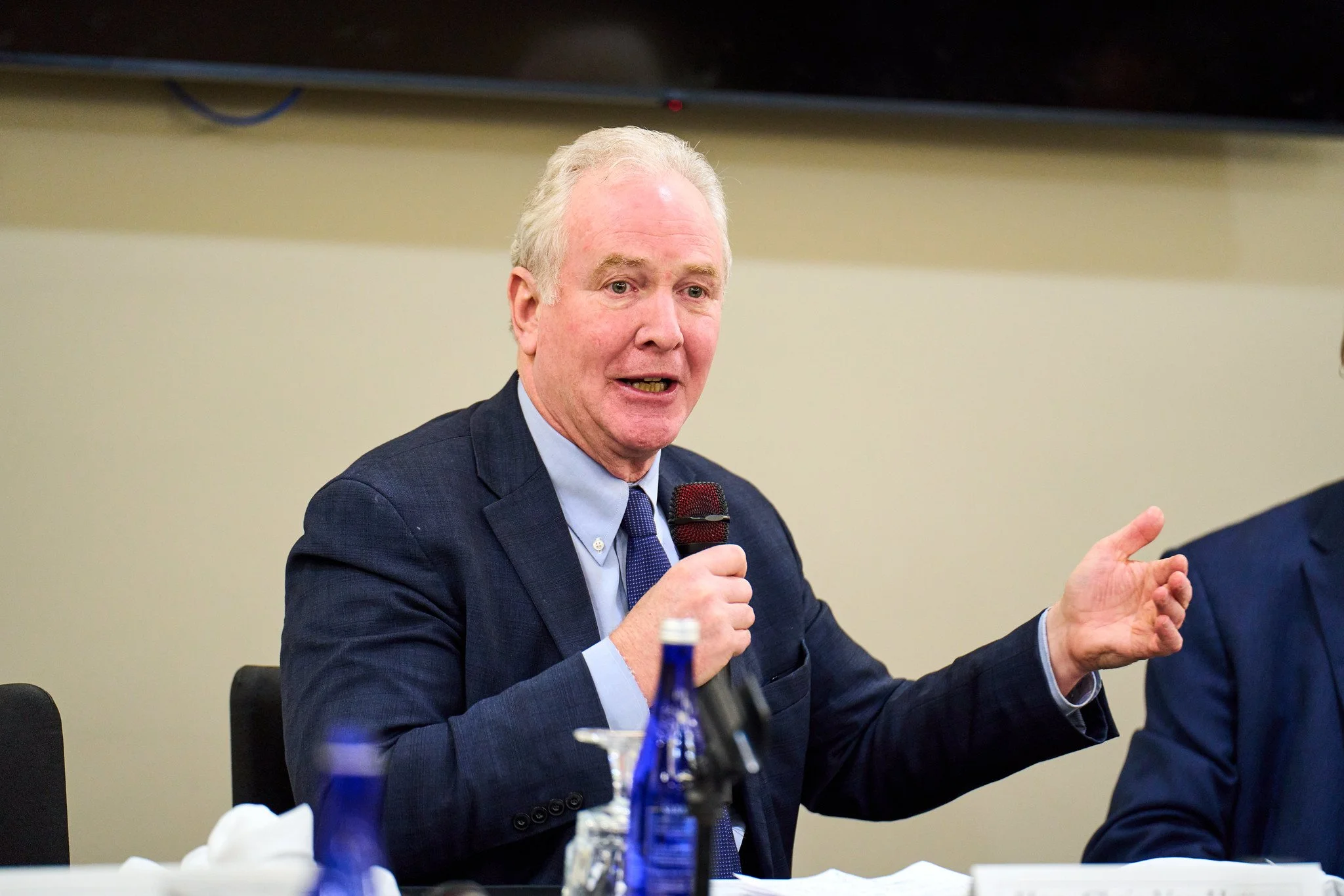
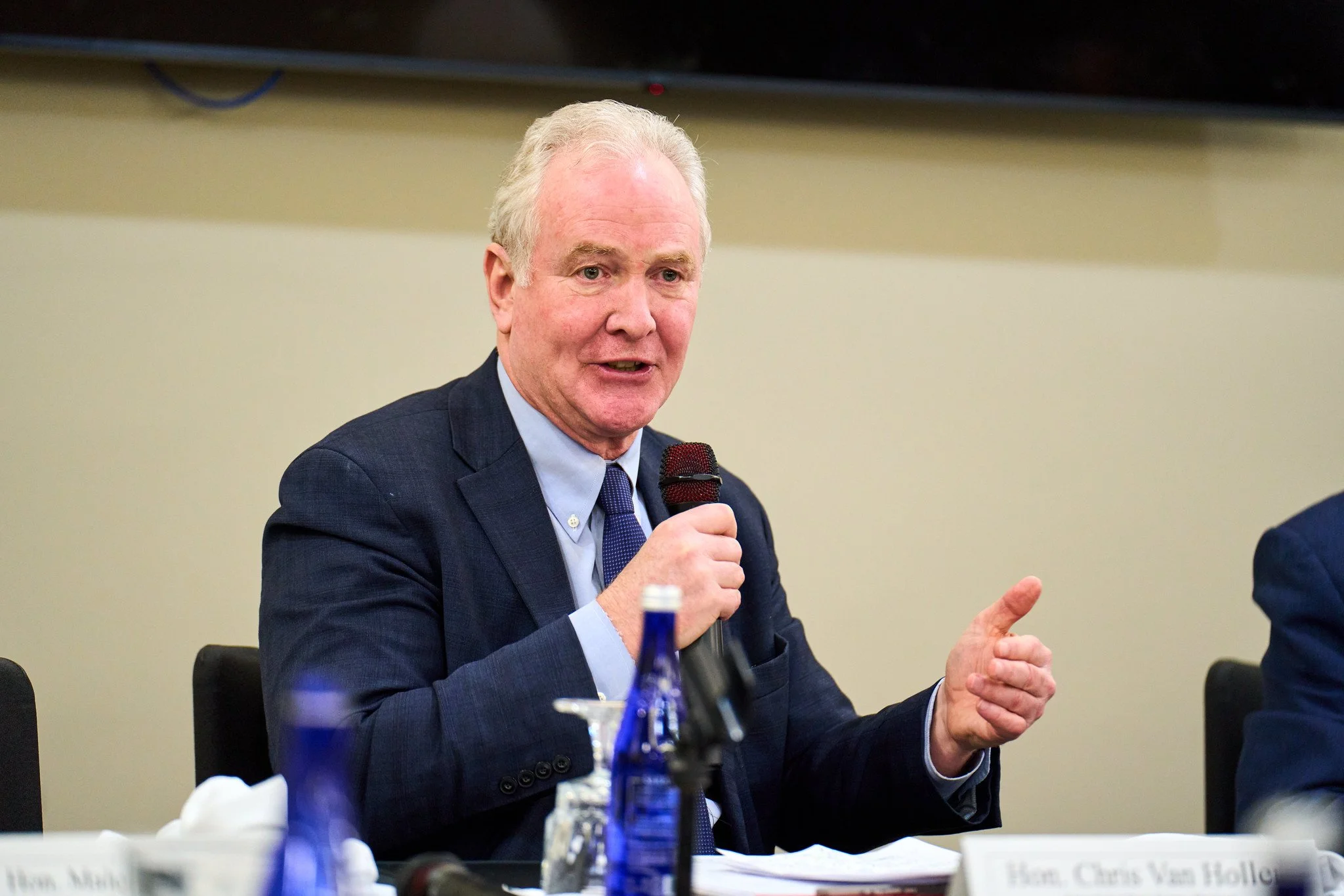
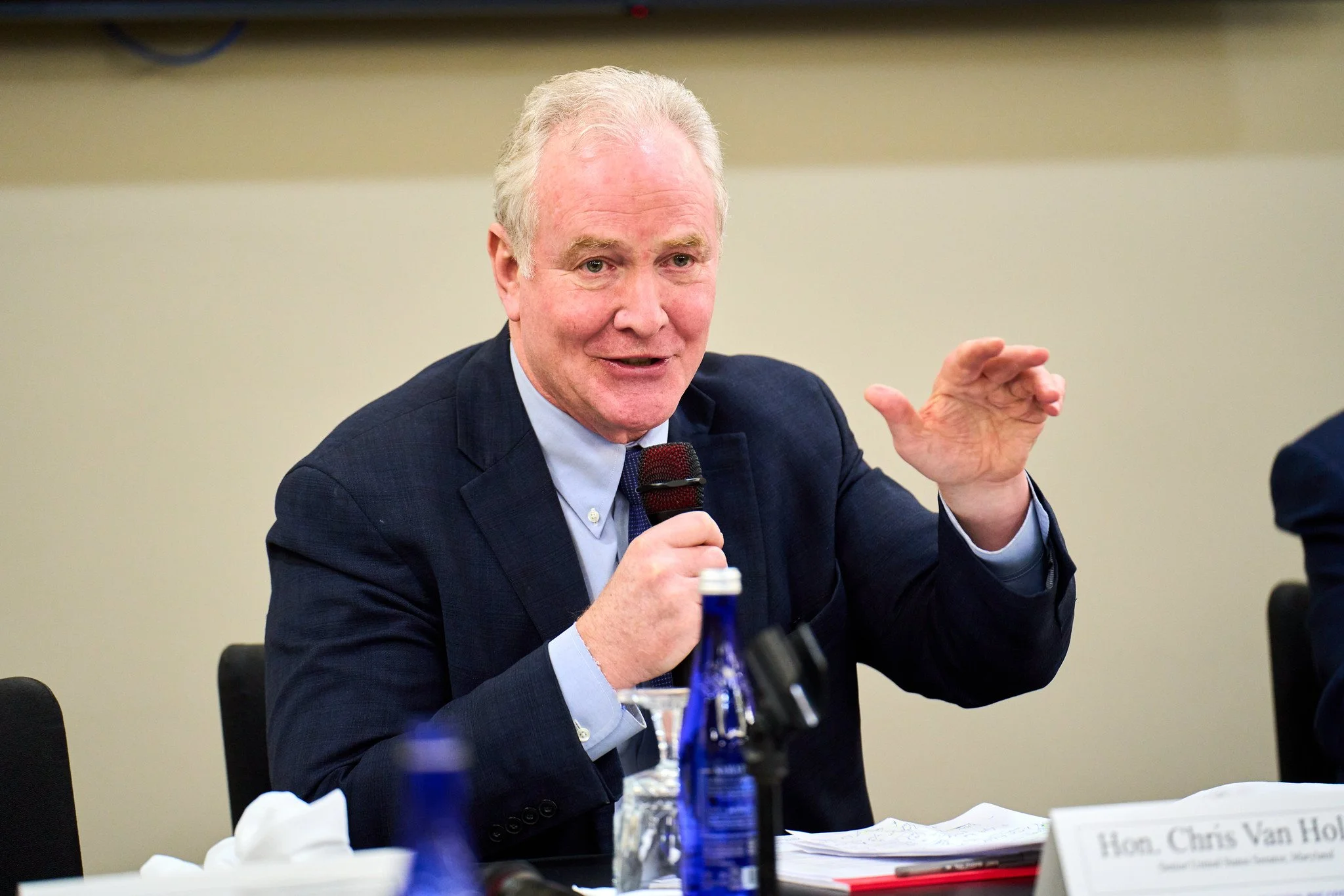
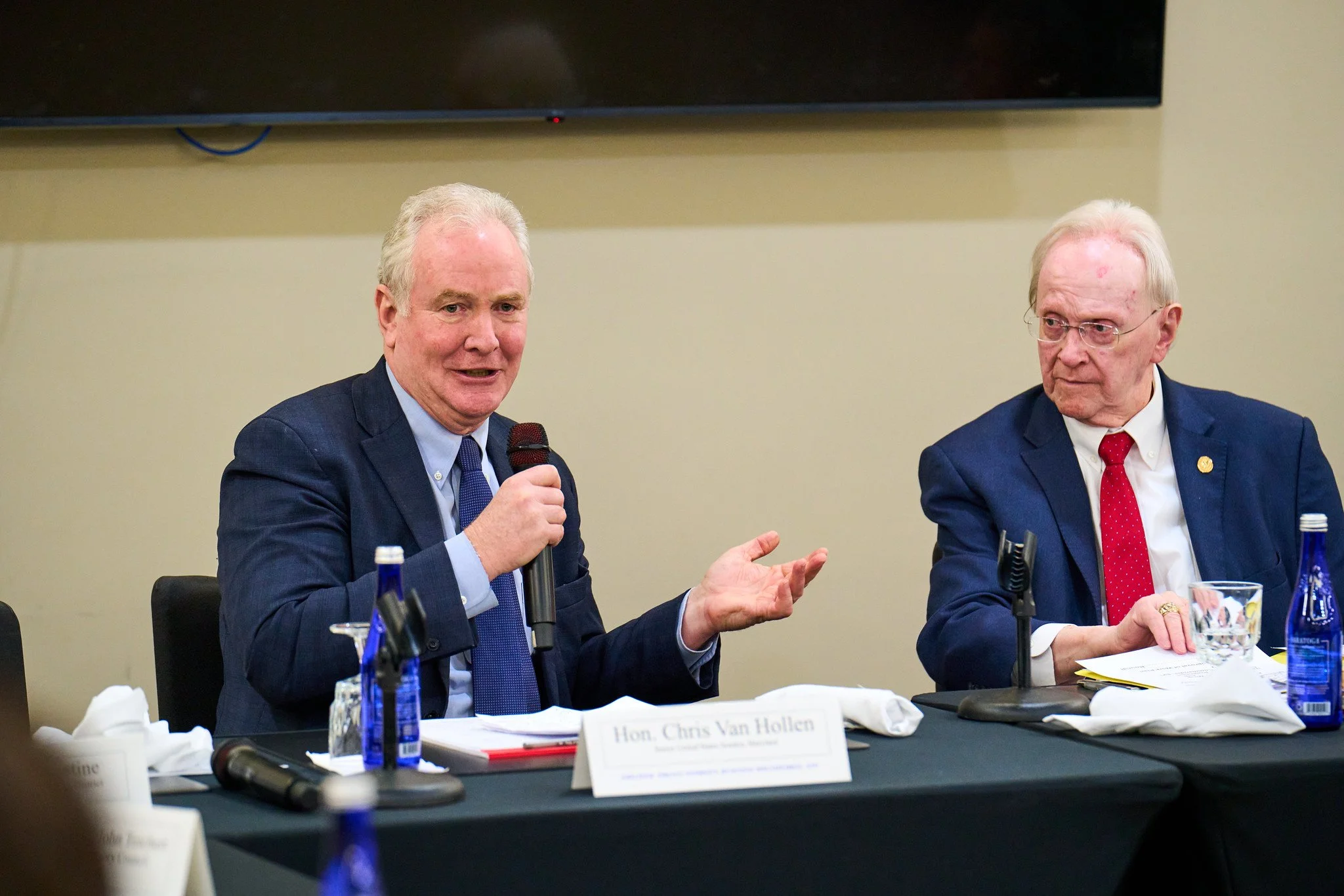
Ivey also highlighted a growing fear of federal layoffs following a recent Supreme Court decision that enables mass firings. With over 72,000 federal employees in Prince George’s County, “we are going to get hit hard,” she said. Job losses could translate into foreclosures, lower income tax revenues, and economic distress across the region.
On a more personal note, Ivey shared her dedication to disability advocacy, revealing efforts to support low-vision residents and plans to expand into autism initiatives. adding that her office had already secured meeting space for community training sessions.
Wrapping up her talk, Ivey stressed the urgency of engagement and communication. “The rest of us need to speak up,” she urged. “The impact of these decisions is real, and it's local.”
Her presentation, a blend of fiscal insight and passionate advocacy, was warmly received by the business community. Greater Prince George’s Business Roundtable President and CEO Jim Estepp concluded, “You’re here, you answer questions, you pick up the phone—that’s 90% of the game right there.”
NEXT: Brig Gen (ret) E. John Tiechert of the Community Advisory Council shares a report to the business community regarding the bottleneck of business growth and how to address it.
12 key legislative decisions taken by Prince George’s County Council from September 2024 to June 2025:
CB‑015‑2024 – Zoning Ordinance Omnibus Bill (Sept 2024)
— Updated and clarified numerous provisions in the County’s new Zoning Ordinance to streamline implementation efforts and improve consistency (Maryland Courts, Prince George's County Council).CB‑027‑2024 – Transitional Subdivision Time Extension (late 2024)
— Extended the timeframe for building projects to be approved under prior subdivision regulations during the zoning transition process (princegeorgescountymd.granicus.com).CB‑039‑2024 – Bond Issuance for County Buildings (late 2024)
— Authorized county borrowing for capital improvements of general county buildings (princegeorgescountymd.granicus.com, Wikipedia).CB‑040‑2024 – Bond Issuance for Library Facilities (late 2024)
— Approved financing for construction and renovation of library infrastructure (princegeorgescountymd.granicus.com).CB‑041‑2024 – Bond Issuance for Community College Facilities (late 2024)
— Allowed borrowing to fund Prince George’s Community College expansion projects (princegeorgescountymd.granicus.com).CB‑042‑2024 – Bond Issuance for Public Works & Transportation (late 2024)
— Permitted issuance of bonds for public works and transportation facility investments (princegeorgescountymd.granicus.com).CB‑043‑2024 – Bond Issuance for Public Safety Facilities (late 2024)
— Enabled borrowing for constructing and upgrading law‑enforcement and emergency facilities .CB‑050‑2024 – Charter Amendment (Section 815) (late 2024)
— Modified the County Charter’s Section 815 to tighten fiscal and operational transparency rules (princegeorgescountymd.granicus.com).CB‑051‑2024 – Charter Amendment (Section 313) (late 2024)
— Changed the structure of the County Auditor’s term limits and duties under the charter (princegeorgescountymd.granicus.com).CB‑055‑2024 – Permanent Rent Stabilization Act (passed early 2025)
— Converted a temporary rent stabilization measure into a permanent law to cap rent increases (Prince George's County Council).CB‑086‑2024 – Abandoned Vehicles Bill (passed early 2025)
— Strengthened penalties for illegally abandoned vehicles—raising fines from $50 and creating enforcement mechanisms (PGC Council).CR‑053‑2025 – Water & Sewer Plan Amendments (March 2025 cycle) (June 2025)
— Amended water and sewer service designations for multiple properties to align with infrastructure plans (legigram.com).
These legislative actions reflect the Council’s focus on:
Zoning and land use, improving clarity and process efficiency (CB‑015‑2024, CB‑027‑2024),
Infrastructure financing, using bonds to support public facilities (CB‑039 through CB‑043),
Governance reforms through charter updates (CB‑050, CB‑051),
Housing affordability, via long-term rent stabilization (CB‑055),
Public safety and environment, tackling abandoned vehicles (CB‑086),
Strategic planning via water/sewer infrastructure planning (CR‑053).






